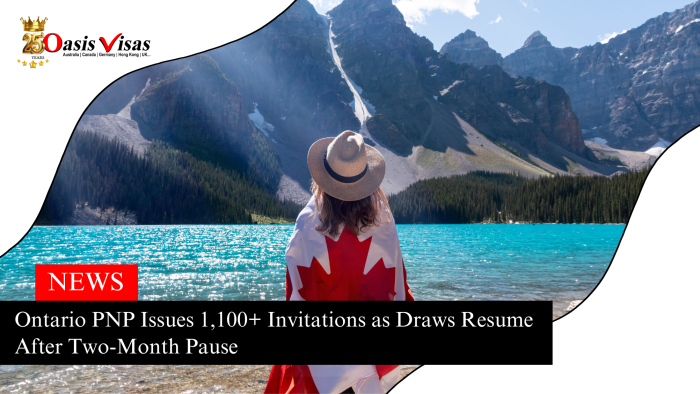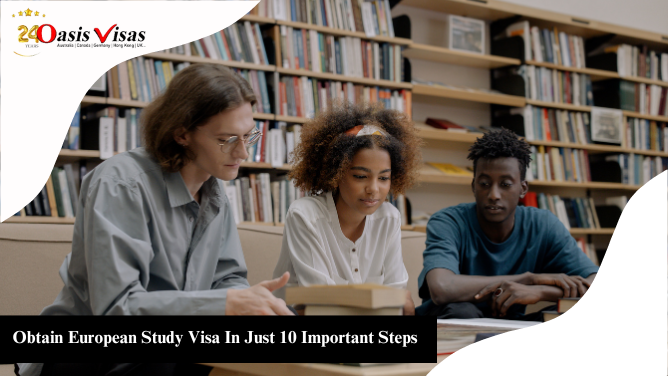
Studying in Europe offers numerous opportunities, from rich cultural heritage to world-leading higher education. Before one proceeds to take up this exciting journey, however, he is faced with the first and foremost challenge of obtaining a study visa. This guide shall thus be helpful to you in a step-by-step procedure to obtain your European study visa for pursuing your studies in Europe.
Understanding the Basics of European Study Visa
What is a study visa?
The study visa is applied for to conduct study activities at any accredited institution in any European country, thus enabling non-European Union or European Economic Area nationals legally to enter and then stay in the country concerned. Each country in Europe has specified requirements and procedures on how to issue a study visa. There will be a need for researching specific regulations in the country one intends to study in.
Types of Study Visas
Basically, there are majorly two types of study visas that one can apply for, namely:
- Short-Term Study Visas: Apply if the course duration is below three months.
- Long-Term Study Visas: courses that are longer than three months are usually majoring in undergraduate and postgraduate programs.
10 Steps to Help You Grab a European Study Visa
Step 1: Select Your Target Program and Study Institution
Before finally being assigned a European study visa, an admission offer is needed to study one of the programs at any accredited educational institution. This step involves:
- Researching programs: Search for programs that align with your interests and goals. You can start your search right on QS World University Rankings or Erasmus+.
- Meeting entry requirements: Ensure that the entry requirements are academic, linguistic, or otherwise per your course needs.
- Apply to universities: Submit applications to the different schools you have selected, with all supporting documents.
Step 2: Secure a letter of admission
After getting admission into one of your admitted study programs, you would be issued either an admission letter or admission confirmation. This letter of admission is important for you since it will form a basis for seeking a visa.
Step 3: Know about the requirements of your visa
The requirements for a visa differ from country to country in Europe. The general requirement is as given below:
- Valid Passport: The validity period of such a passport should extend to cover the intended period of stay.
- Completed Visa Application Form: These can be downloaded from most embassy websites or their various consulates where you intend applying.
- Admission Proof: Letter of Admission from the educational institution to which one is enrolled.
- Evidence of Funds: Evidence means to maintain oneself for the duration of study (bank statement, scholarship letters, financial guarantees, etc.).
- Health Insurance: Evidence of health insurance to cover one’s stay in the country where one would study
- Proof of accommodation: who and with whom they will stay during their studies.
- Language Proficiency Proof: Proof that you satisfy the language entry requirement of the study program, for instance, TOEFL or IELTS scores.
- Other Documents: Other documents might also be needed from some countries, such as a criminal record check or an official medical certificate.
Step 4: Preparing Your Application
Get all of your documents ready and check if they are the latest and accurate ones. Organize them according to the order mentioned by the embassy or the consulate in their checklist. Make a copy of all your documents for your purposes.
Step 5: Schedule a Visa Appointment
Go to the website of the Embassy or Consulate of the country you want to apply to and make an appointment to apply for a visa. This also may differ from country to country, so do it timely as instructed.
Step 6: European Study Visa Interview
Once you fix your visa appointment, you most probably will have to attend an interview. Following are some tips you may follow while preparing for the interview:
- Dress Appropriately: The student should wear formal or at least business casual clothing.
- Be honest and confident: Answer all questions truly and confidently. Common questions may be about your study plans, your financial situation, and your intentions after your studies.
- Bring all documents: Bring all the documents along with their copies.
Step 7: Pay the European Study Visa Fee
Most countries require some amount of processing fee for the visa. The amount and mode of payment must be known beforehand. Gets mentioned on the website of different embassies/consulates.
Step 8: Wait for Processing
Visa processing times vary, so apply well in advance of your intended travel date. It’s a good idea to check on the average processing time for the country you are applying to and plan accordingly.
Step 9: Get Your European Study Visa
They will contact you when your European study visa is ready to be collected in person from the embassy or consulate. Confirm the details of the visa for everything being okay.
Step 10: Ready to Fly
Now that you finally get the European study visa, you can start preparing to fly to Europe. Book flights, search for accommodation, and pack your bags. Also, remember to inform your institution about your expected date of arrival.
Other Tips for Successful Visa Applications
Get Early: Apply as early as possible so that there are no last-minute hiccups. This gives ample time for the preparation of all the documents and fulfilling any other requirements that may spring up.
Stay Organized: Keep all the documents in proper order at hand. Keep them in folders/filing systems so that the documents are not misplaced. If one is not clear about something in the application process, there is no shame in seeking help. Most colleges will have an international student office that can assist in answering queries and processing applications. You may also want to consult with a visa advisor or immigration attorney.
Follow Up: If more time elapses than the usual period it takes for processing, feel free to follow up on the status with the embassy or the consulate. Make polite inquiries over the status of your application and be ready to provide any information if asked.
Plan Your Financing: You have to make sure of a clear idea of your study financing and living costs. This definitely is not only going to help you in your application for a student visa, but will also make studying easier.
Keep Yourself Informed: From time to time, keep yourself updated about changes to visa policies or additional requirements. One can simply follow the updates on the website of the local embassy or register for newsletters or alerts if available.
Getting a European study visa may appear as the most cumbersome task of one’s life. If vigilantly planned and approached in a structured way, the hygiene factor is pretty achievable. Clearly explained in this guide, the steps will give you a confident sail through the process to focus on the exciting journey ahead. Remember, the visa application is distinguished by exhaustive preparation and attention to detail. For more information, you can visit our Oasis-India Customer Support. All the best for your studies in Europe from Oasis-India.








